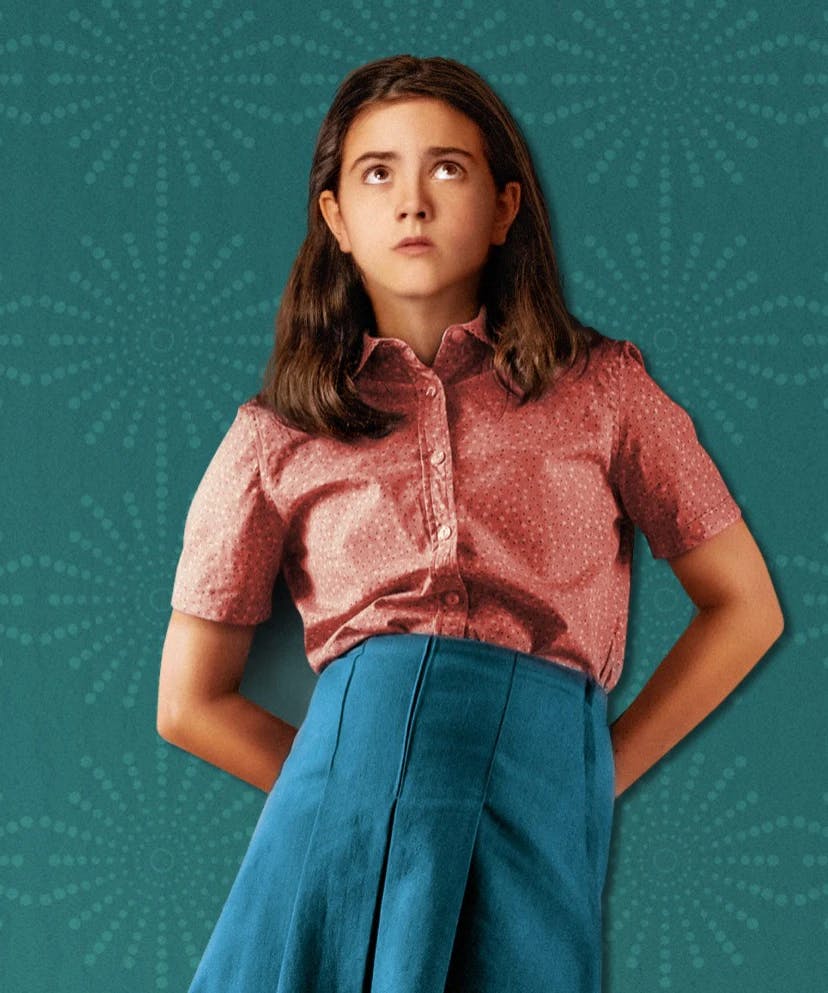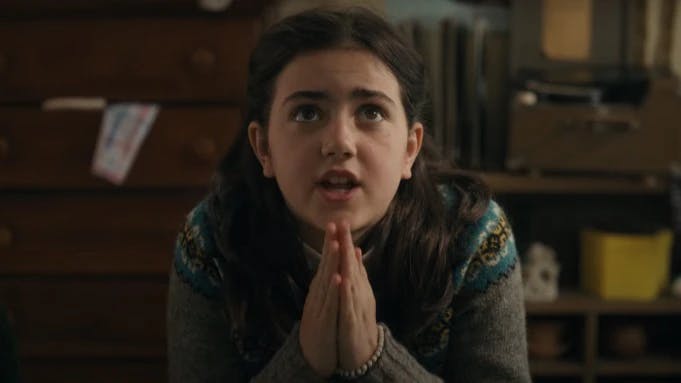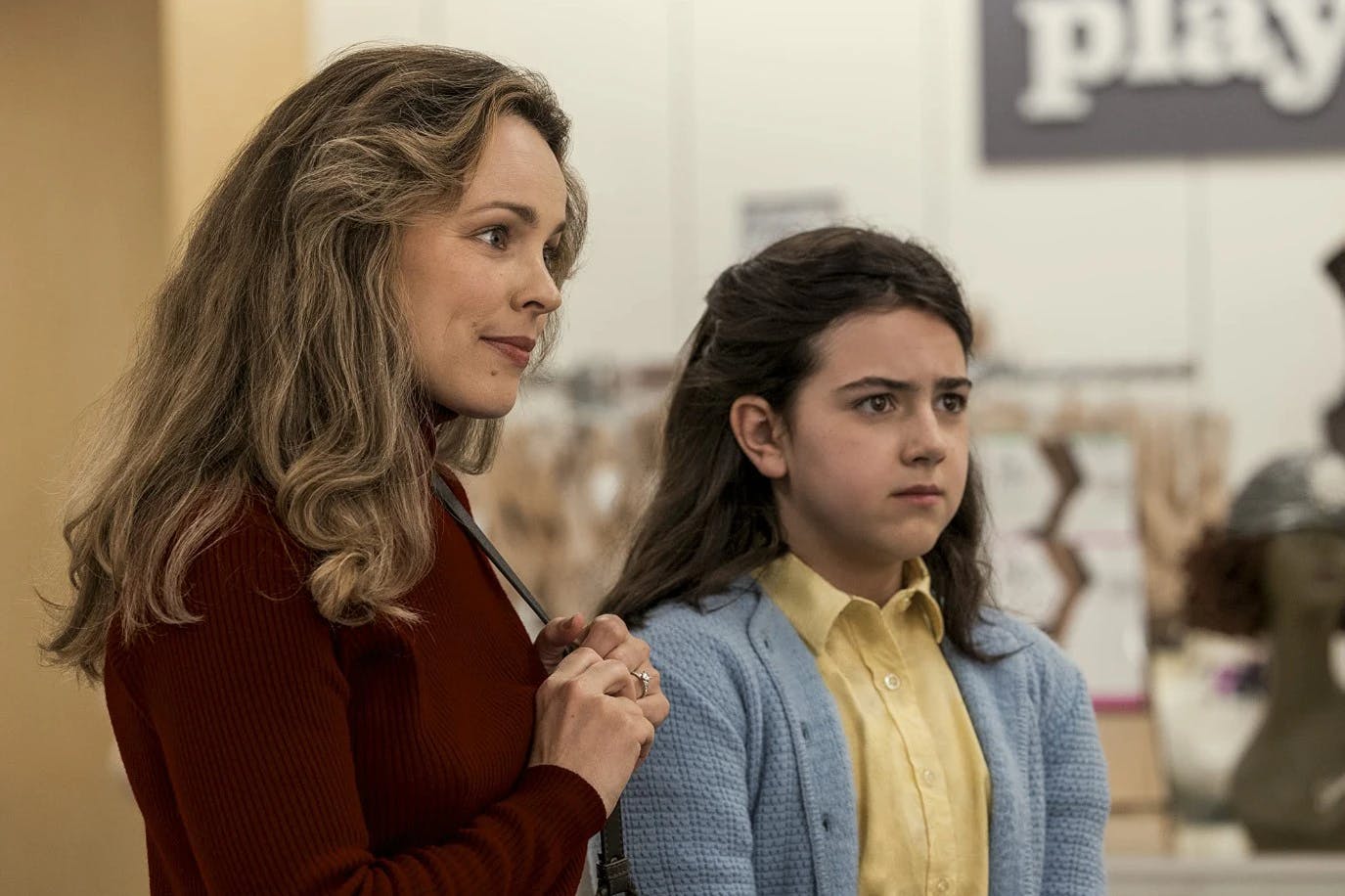What Judy Blume Gets Wrong About Girls In “Are You There God? It’s Me, Margaret” But Her Film Adaptation Gets Right
“We must, we must, we must increase our bust.” If you grew up anytime between the 1970s and ‘90s, you’re probably familiar with the phrase from Judy Blume’s beloved and controversial novel “Are You There God? It’s Me, Margaret.”

But whether you liked the book or not, the recent movie adaptation is better – and even Blume thinks so.
Are You There God? follows young Margaret Simon whose family has just moved to the suburbs, and she’s struggling to adjust. She doesn’t like the right boys, she hasn’t started puberty yet, and unlike everyone else, she doesn’t even have a religion. Margaret can’t get away from the feeling that she just doesn’t really belong anywhere.
I’ll admit it – I wasn’t a fan of this book when I read it. I was, therefore, surprised to find the film so warm and deeply meaningful.
There’s a lot to love about Are You There God? It’s Me, Margaret. Abby Ryder Fortson’s performance as Margaret perfectly captures the mixture of sweetness and confused emotions that plague middle school girls. The film has just enough 1970s nostalgia to be groovy without dating its timeless message. And best of all – Rachel McAdams is back in comedy, and oh how we’ve missed her!
*Spoilers Ahead*
Why Are You There God? Is Controversial
It wouldn’t be a Judy Blume adaptation if there wasn’t some kind of controversy. Despite the recent film’s universally high ratings on Rotten Tomatoes (99% critic rating and 94% audience rating), Are You There God? has underperformed at the box office. To boost ticket sales, Lionsgate has entered into a last minute paid internship with trans influencer Dylan Mulvaney, whose recent controversial Bud Light sponsorship backfired on the beer company.
The story of Are You There God? It’s Me, Margaret has been subject to controversy since it was first published in 1970. Margaret (and her friends’) preoccupation with menstruation and sexuality is obsessive, to the point of feeling unrealistic. Margaret’s girls club sneaks a science book to examine the male anatomy, and they discuss nudity and pour over a copy of Playboy.
Blume likes sparking controversy. Her novel Deenie, a book about teenagers exploring sexuality, joins Are You There God? on multiple banned books lists in libraries around the country. In fact, no fewer than five of Blume’s novels made it onto the Most Frequently Challenged Books of 1990-1999 list.
What a Girl Really Wants Isn’t Just Pads
When I first read this book, I did not identify with Margaret’s monomaniacal anticipation of her first period, and I’d be willing to bet I’m not the only one. The book is so focused on these questions that it goes far past the point of being edifying and feels almost silly.
The novel’s critics make many good points about Blume’s questionable preoccupation with issues of sexuality. While it’s normal for girls to have questions about their changing bodies, it’s not the end-all-be-all in the mind of a middle schooler. Girls aren’t just curious about sex, and when they are it has deeper meaning than pure biology.
In the film, it becomes clear that what Margaret is really looking for is a sense of identity. Uprooted from her community in the city to go live in the suburbs, Margaret has lost all sense of who she is. She doesn’t just want to wear a bra or use pads – she wants to know what will define her as a young woman. A girl wants to know about her body because she is learning about who she truly is as a woman.

It’s for this reason that Margaret spends as much of the film talking to God and trying different religions, to find out which one will be “her” religion, as she does buying pads and trying them on. Ultimately, Margaret discovers that the way she treats others and what she believes about God will do just as much to define her as the size of bra she wears.
What Are You There God? Says About Female Friendships
By focusing on Margaret’s search to discover herself as a woman, and not just as a sexual being, the film adaptation emphasizes the dangers of toxic female friendships. When Margaret first moves, her neighbor up the street Nancy Wheeler shows up to befriend her with an offer of playing in the sprinklers.
But Nancy is no girl next door – she’s the stereotypical frienemy (Margaret needed Evie's guide about which friends to avoid). Nancy pursues the friendship, but she subtly undermines Margaret by making snide comments about how her own house, and her own breasts, are “bigger.” She gossips about other students in their class, and mocks Margaret for wanting privacy when she changes into a bathing suit. Nancy even lies to Margaret about her own period beginning after Margaret ends up kissing the most handsome boy in their class at a birthday party. In short, Nancy’s friendship is toxic.
Margaret doesn’t realize the effect that this friendship has had on her personality until she accuses Laura Danker, another girl in their class, of being promiscuous with the boys and of feeling superior because she needs a bra. Margaret learns that not only is she wrong about Laura, but that she and her friends have been bullying the lonely girl all year. Confronted with the girl she has become, Margaret begins to re-evaluate the people she actually wants in her life.

The casting of Rachel McAdams in the film draws an obvious comparison to another movie about toxic female friendships: Mean Girls. But unlike that cult classic film, Are You There God? reminds us that not all female friendships are plagued with jealousy and gossip. Margaret becomes friends with Laura, and learns that her friend Janie has been just as uncomfortable as she has been with Nancy’s attitude.
Margaret’s Relationship with Her Mother Is More Important in the Film Than in the Book
The biggest and most important change in the film is the emphasis on Margaret’s relationship with her mother Barbara.
In the book, Margaret often whines about her mother and doesn’t seem much interested in her as a person. It’s common for people to say this is “normal for kids that age,” but Are You There God? doesn’t seem to think so. In the film, it is Nancy who lives in her own spoiled world, with little affection or thought for her parents, and it’s a sign of her poor character.
Both Barbara and Margaret do have lessons to learn over the course of the film, and their journeys are parallel. On Margaret’s first day of school, her mother spends her first day at home setting up the house. After Margaret attends her first club meetings at Nancy’s house, Barbara spends her first day with the superficial ladies of the PTA. Each struggles to find herself in their new home.

This focus on mother and daughter helps Are You There God? to transcend the typical coming of age story. Maturation isn’t just something that happens to girls when their bodies change. It’s something that happens throughout our lives.
Margaret’s journey to discover herself actually brings her closer to her mother. In one of the best scenes of the film, Barbara sits down to answer her daughter’s questions about why they never see Barbara’s parents. Trying to keep back tears, Barbara explains that her parents would not accept her husband as their son-in-law because of his religion. Margaret is horrified and shocked, knowing that her own mother would never abandon her.
This moment is paralleled at the end of the film when Barbara and Margaret sit together on the couch and comfort one another over their disastrous family dinner. “It gets tiring. Trying so hard all the time, doesn’t it?” Barbara commiserates. It’s a simple and sweet moment, but it’s also one of the most fulfilling parts of the movie. It prepares mother and daughter to share the climax of Margaret’s journey, when her mother can tell her truly, “You’re a woman now.”
Closing Thoughts
The film adaptation of Are You There God? It’s Me, Margaret succeeds where the book fails. It doesn’t shy away from the messiness of life, and definitely isn’t something to show your kids. But instead of focusing on questions of puberty, it reminds us that a woman’s maturation doesn’t finish when she gets a bra. That’s just the beginning.
Don’t miss anything! Subscribe to Evie!